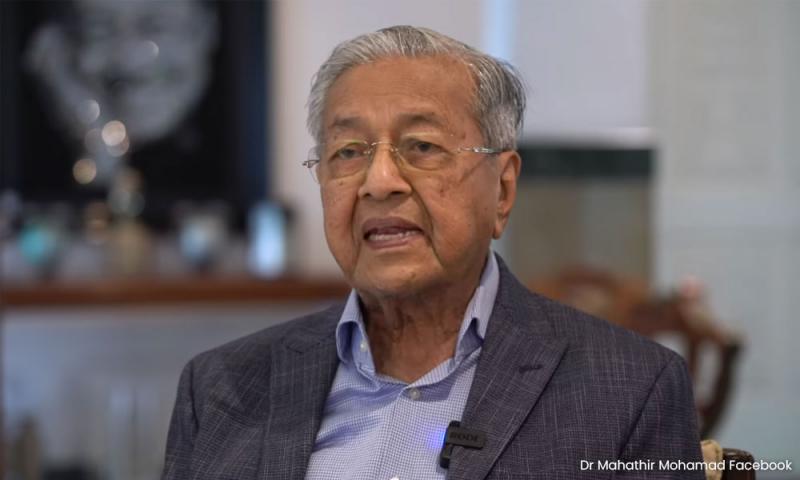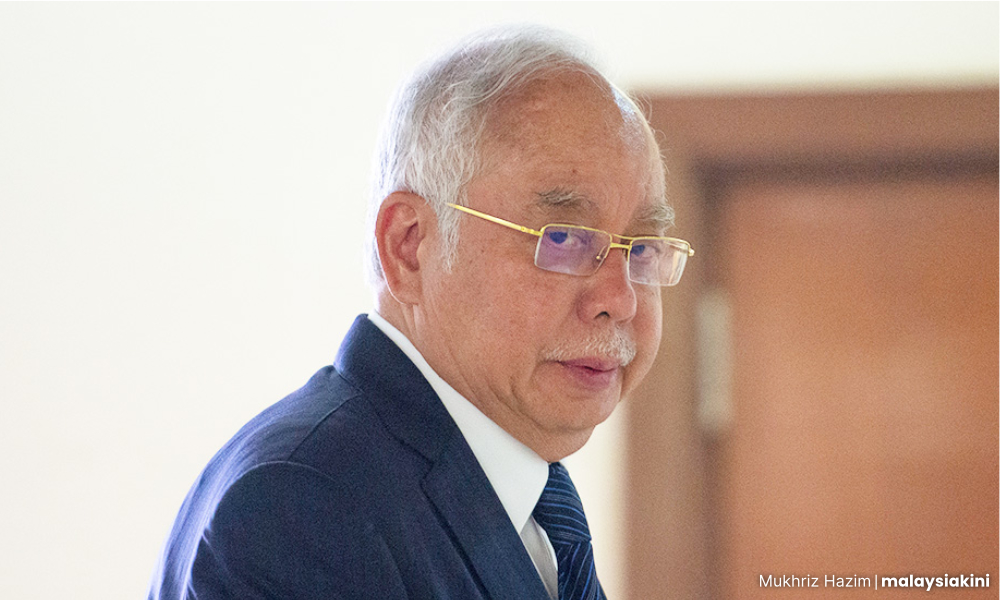
Dr M: Pak Lah's son told my son, 'now it's our turn to steal'
Published: Jan 10, 2025 4:57 PM
Summary
- Dr Mahathir Mohamad reveals a conversation where Abdullah Ahmad Badawi’s son allegedly stated that his family’s turn in power was for personal enrichment.
- Mahthir regrets his decision to resign in 2003, feeling that had he stayed in office, he might have better understood the mistakes of his successors.
- Mahathir defends the New Economic Policy, acknowledging its necessity in helping bumiputera catch up economically but emphasising it should be gradually phased out.
Dr Mahathir Mohamad has revealed an alleged conversation between his son and Abdullah Ahmad Badawi’s son, in which the latter purportedly expressed an intention to use his father’s position to enrich himself.
Without mentioning specific names, the former premier claimed he was shocked by this revelation.
“They (his successors) believed that during my time as prime minister, I was abusing power and was corrupt. The son of Abdullah told my son, ‘It was your turn before, now it is our turn’. Our turn for what? To steal money. I was shocked,” he said.
Mahathir lamented that instead of focusing on leading and building the country, “they viewed the power of the prime minister as a means to enrich themselves”.
“At that stage, I regretted resigning as prime minister (in 2003),” he added.
Mahathir, who served as prime minister twice, shared this revelation during a podcast on YouTube this morning hosted by former minister Idris Jala and his son Leon. He was responding to questions about grooming successors.
‘When Najib took over, I was very happy’
The veteran politician, who will turn 100 this year, said he was initially elated when Najib Abdul Razak succeeded Abdullah in 2009. Mahathir had played a key role in campaigning against Abdullah, who stepped down after BN’s dismal performance in the 2008 general election.
“When Najib took over, I was very happy. Here was the son of an illustrious former prime minister (Abdul Razak Hussein). He was going to do things well. But you know what happened,” he said, referencing the 1MDB scandal and his role in ousting Najib.

In hindsight, Mahathir feels he perhaps should not have resigned after 22 years at the helm.
“But if I had gone on, I would not have known the mistakes. I would not have known the kind of characters succeeding me. It was a difficult decision for me. But generally, a leader must be prepared to step down even when successful,” he added.
When addressing a different question, Mahathir also criticised Najib’s attitude towards accountability, particularly the former premier’s “Nak malu apa bossku” slogan.
“The sense of shame among the Japanese is very strong, and that is very important. You should feel ashamed if you fail. You should feel ashamed if you do wrong. But Najib says, ‘Nak malu apa Bossku’. To me, that is a terrible thing,” he said.
Bumiputera privileges and education system
When asked about the special privileges and affirmative actions for the bumiputera, Idris suggested that it might be time to sunset the New Economic Policy (NEP) in its latest iteration.
Mahathir responded by employing his famous “crutches” analogy, explaining that change must be gradual - from crutches to walking sticks to walking independently. He cautioned that snatching the crutches would lead to a fall.
He reiterated his controversial remark that “Malays are lazy”, highlighting cultural differences between the Malay and Chinese communities.
“I admit the NEP should not be forever. It should be tapered off. But you have to understand the achievements of the NEP. In education, we have done quite (well). In business, the problem is with the different cultures and value systems. Changing the value system takes time,” he said.
Mahathir acknowledged that while there are now many successful bumiputera entrepreneurs, it is still not enough to close the gap with the Chinese.

“The Chinese have 4,000 years of history in learning how to do business. We have a few hundred years. It takes time for us to catch up,” he explained.
Agreeing with Idris, Mahathir conceded that defending these forms of assistance does make him feel embarrassed.
“In a way, I feel ashamed. I have to defend that the Malays and bumiputera rely on so-called privileges. They are not privileges; they are affirmative actions to help them catch up,” he said.
Mahathir also touched on the need to overhaul the education system and addressed allegations against him as well as his defeat in the last general election, which he attributed to corruption.
Towards the end of the interview, Mahathir was asked about Malaysia and Singapore, as well as comparisons made between him and the late Lee Kuan Yew, Singapore’s founding father and first prime minister.
While Mahathir credited Lee as a “brilliant lawyer and great thinker”, he also described him as “kiasu” (a competitive or overly ambitious person).
No comments:
Post a Comment